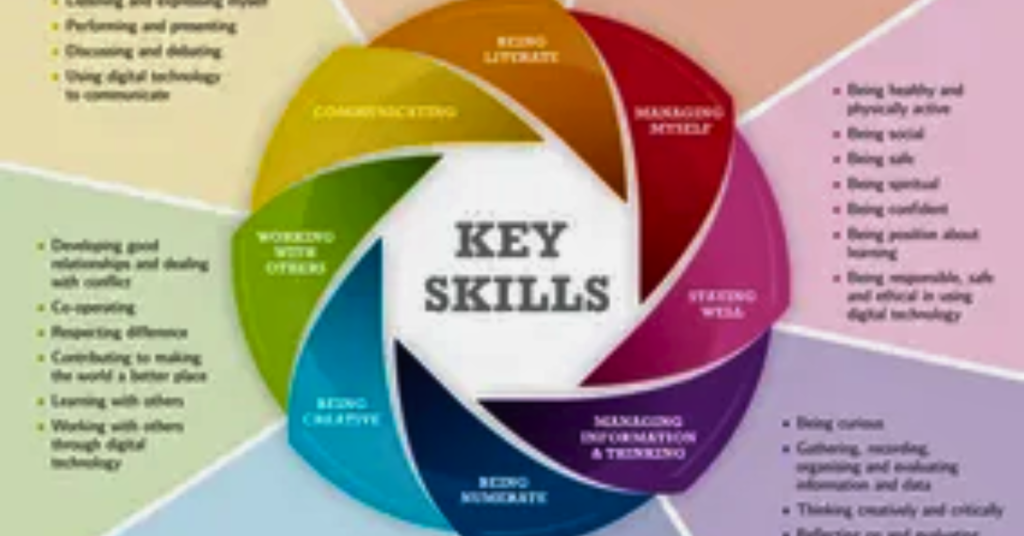In an increasingly digital world technology continues to shape every aspect of our lives.From smartphones to artificial intelligence the tech industry has become a driving force behind global innovation and economic growth.
As we navigate the complexities of 2024 many individuals are considering whether a career in technology is the right choice for them.
This comprehensive guide will explore the current state of the tech industry its advantages and challenges, and provide insights into what it takes to succeed in this dynamic field.
The Current State Of The Tech Industry

The Impact Of AI And Automation
Artificial Intelligence (AI) and automation have revolutionized the tech landscape in recent years.As we move further into 2024 these technologies continue to transform industries and create new opportunities for tech professionals.
AI-powered systems are now capable of performing tasks that were once thought to be exclusively human domains from natural language processing to complex decision-making.
The rise of AI and automation has led to:
- Increased demand for AI specialists and machine learning engineers
- The need for professionals who can develop and maintain AI systems
- Growing concerns about job displacement in certain sectors
- Opportunities for tech workers to focus on higher-value tasks
- The emergence of new roles centered around AI ethics and governance
While some fear that AI might replace human workers the reality is more nuanced.As AI takes over routine tasks, new roles are emerging that require uniquely human skills such as creativity critical thinking and emotional intelligence.
Read This Blog:WDROYO Technology:Revolutionizing Technology And Impact
The Rise Of Remote Work In Tech
The COVID-19 pandemic accelerated the adoption of remote work and the tech industry has been at the forefront of this shift. In 2024 remote and hybrid work models have become the norm for many tech companies offering professionals unprecedented flexibility and work-life balance.
Key aspects of remote work in tech include:
- Increased access to global talent pools for companies
- Greater job opportunities for tech workers regardless of location
- The need for strong communication and collaboration skills
- Challenges in maintaining company culture and team cohesion
- The development of new tools and platforms to support remote work
As remote work continues to evolve tech professionals must adapt to new ways of collaborating and managing their time effectively.
Advantages Of Pursuing A Tech Career

High Salary Potential
One of the most attractive aspects of a career in technology is the potential for high earnings.Tech professionals often command salaries well above the national average with experienced specialists in high-demand fields earning six-figure incomes.
Factors contributing to high salaries in tech:
- Shortage of skilled professionals in certain areas
- The critical role of technology in business success
- Competitive compensation packages to attract and retain talent
- Opportunities for rapid career advancement
- Potential for equity and stock options in startups
However, it’s important to note that salaries can vary widely based on factors such as location, experience, and specific skill sets.
Read This Blog:FintechZoom GME Stock Brief Overview 2024
Job Security And Growth Opportunities
The tech industry has shown resilience even in challenging economic times.As businesses across all sectors continue to digitize their operations the demand for tech professionals remains strong.This trend provides a level of job security that is increasingly rare in other industries.
Key factors contributing to job security in tech:
- Continuous technological advancements creating new job roles
- The essential nature of tech skills in modern business operations
- Opportunities for career pivots within the tech industry
- Growing demand for cybersecurity professionals
- The need for tech expertise in traditionally non-tech industries
With the right skills and adaptability tech professionals can enjoy long-term career stability and numerous opportunities for growth.
Innovation And Creativity
For those who thrive on innovation and creative problem-solving a career in technology offers endless possibilities.Tech professionals are at the forefront of developing solutions that shape the future and improve people’s lives.
Ways tech careers foster innovation and creativity:
- Opportunities to work on cutting-edge projects
- Encouragement of out-of-the-box thinking
- Collaborative environments that spark new ideas
- The ability to create products with global impact
- Constant learning and skill development
The tech industry attracts individuals who are passionate about making a difference through innovation offering a fulfilling career path for creative minds.
Challenges In The Tech Industry

Rapid Pace Of Change
While the constant evolution of technology creates opportunities it also presents challenges for professionals in the field.
The rapid pace of change means that tech workers must continually update their skills to remain relevant.
Challenges posed by the fast-changing tech landscape:
- The need for lifelong learning and skill development
- Potential for skill obsolescence if not kept up-to-date
- Pressure to stay ahead of emerging technologies
- Difficulty in long-term career planning due to industry shifts
- The stress of adapting to new tools and methodologies
Successful tech professionals embrace change and view continuous learning as an exciting aspect of their career rather than a burden.
Work-Life Balance Challenges
The demanding nature of many tech roles can lead to work-life balance issues.Long hours, tight deadlines and the always-on nature of technology can contribute to stress and burnout.
Factors affecting work-life balance in tech:
- High-pressure environments, especially in startups
- The expectation of availability outside regular working hours
- Project-based work with fluctuating workloads
- The blurring of lines between work and personal life in remote settings
- Competitive nature of the industry pushing professionals to overwork
While many tech companies are addressing these issues with flexible work arrangements and wellness programs individuals must also take proactive steps to maintain a healthy work-life balance.
Diversity And Inclusion Issues
The tech industry has faced ongoing criticism for its lack of diversity and inclusion.While progress has been made underrepresentation of women people of color and other minority groups remains a significant challenge.
Diversity and inclusion challenges in tech:
- Unconscious bias in hiring and promotion practices
- Lack of diverse role models in leadership positions
- Pay gaps between different demographic groups
- Cultural challenges that can lead to feelings of isolation
- The need for more inclusive workplace policies and practices
Addressing these issues is crucial not only for ethical reasons but also for fostering innovation and creativity through diverse perspectives.
Key Skills For Success In Tech

To thrive in the tech industry, professionals need a combination of technical expertise and soft skills.While specific technical skills vary by role some universally valuable skills include:
- Programming and coding proficiency
- Data analysis and interpretation
- Cloud computing knowledge
- Cybersecurity awareness
- Artificial Intelligence and Machine Learning understanding
Equally important are soft skills such as:
- Problem-solving and critical thinking
- Adaptability and willingness to learn
- Effective communication
- Collaboration and teamwork
- Project management
Developing a balanced skill set that combines technical prowess with strong interpersonal abilities is key to long-term success in tech.
Popular Tech Career Paths
The tech industry offers a wide range of career paths to suit different interests and skill sets. Some popular options include:
- Software Development
- Data Science and Analytics
- Cybersecurity
- Cloud Computing
- Artificial Intelligence and Machine Learning
- User Experience (UX) Design
- Product Management
- DevOps Engineering
- Blockchain Development
- Internet of Things (IoT) Engineering
Each of these paths offers unique challenges and opportunities, allowing individuals to find a niche that aligns with their passions and strengths.
Education And Training For Tech Careers
Traditional Degree Programs
Many tech professionals begin their careers with a traditional degree in computer science information technology or a related field.
These programs provide a solid foundation in theoretical concepts and practical skills.
Advantages of traditional degree programs:
- Comprehensive coverage of fundamental concepts
- Opportunities for internships and networking
- Access to research opportunities and advanced topics
- Recognition and credibility in the job market
However, the rapidly changing nature of technology means that even degree holders must continue learning throughout their careers.
Bootcamps And Short-term Programs
For those looking to enter the tech field quickly or transition from another career coding bootcamps and short-term intensive programs have become popular alternatives to traditional degrees.
Benefits of bootcamps and short-term programs:
- Focused, hands-on learning of practical skills
- Shorter duration compared to degree programs
- Often more affordable than traditional education
- Emphasis on job placement and career support
- Flexibility with part-time and online options
While these programs can provide a quick entry into tech careers, they may not offer the same depth of knowledge as a full degree program.
Self-directed Learning And Certifications
The abundance of online resources and industry certifications allows motivated individuals to pursue self-directed learning paths in technology.
Advantages of self-directed learning:
- Flexibility to learn at one’s own pace
- Ability to focus on specific skills relevant to career goals
- Cost-effective compared to formal education
- Opportunity to stay current with the latest technologies
- Demonstrates initiative and passion to potential employers
Many tech professionals combine formal education with self-directed learning and certifications to create a well-rounded skill set.
The Future Of Tech Careers
Emerging Technologies
As we look to the future, several emerging technologies are likely to shape the landscape of tech careers:
- Quantum Computing
- Extended Reality (AR/VR/MR)
- Edge Computing
- 5G and Advanced Connectivity
- Biotechnology and Neurotech
Professionals who develop expertise in these areas may find themselves at the forefront of technological innovation in the coming years.
Increased Focus On Ethics And Responsibility
With the growing impact of technology on society there is an increased focus on ethics and responsible development.Future tech careers are likely to involve:
- Ethical AI development and implementation
- Data privacy and protection
- Environmental sustainability in tech
- Addressing algorithmic bias
- Tech policy and governance
Tech professionals will need to consider the broader implications of their work and strive for responsible innovation.
Interdisciplinary Roles
The future of tech careers is likely to see a rise in interdisciplinary roles that combine technology with other fields such as:
- Healthcare technology
- Fintech
- EdTech
- GreenTech
- LegalTech
These hybrid roles will require professionals to have both technical skills and domain-specific knowledge opening up new and exciting career opportunities.
FAQs
Is A Degree Necessary For A Career In Technology?
While a degree can be beneficial it’s not always necessary.Many successful tech professionals have alternative educational backgrounds or are self-taught.What matters most is your skills, portfolio, and ability to learn.
What Is The Job Outlook For Tech Careers In 2024?
The job outlook for tech careers remains strong in 2024 with continued growth expected in areas like AI cybersecurity, and cloud computing.However, competition for top positions is fierce.
How Can I Stay Relevant In The Fast-Changing Tech Industry?
Stay relevant by continuously learning attending industry events, following tech news and working on personal projects.Embrace a growth mindset and be open to new technologies and methodologies.
Are Tech Jobs Stressful?
Tech jobs can be stressful due to tight deadlines high expectations and the need to constantly update skills.However, stress levels vary by role, company culture and individual coping mechanisms.
Can I Switch To A Tech Career If I Have A Non-Technical Background?
Yes, many people successfully transition to tech careers from non-technical backgrounds.Bootcamps online courses, and self-study can help you acquire the necessary skills.Your unique perspective can be an asset in the tech industry.
Conclusion
Technology remains a promising career path in 2024 offering high salaries job security and opportunities for innovation.
However, it comes with challenges like rapid change and potential work-life balance issues.Ultimately success in tech depends on one’s passion for the field, adaptability, and commitment to continuous learning.

William is a passionate fashion enthusiast with a keen eye for style trends.
With a background in textile design and years of experience in the Tech industry, William brings a unique perspective to his writing. He loves exploring sustainable fashion and street style.
![Is Technology A Good Career Path? [2024 Pros + Cons]](https://techsrevup.com/wp-content/uploads/2024/08/Is-Technology-A-Good-Career-Path-2024-Pros-Cons.png)







